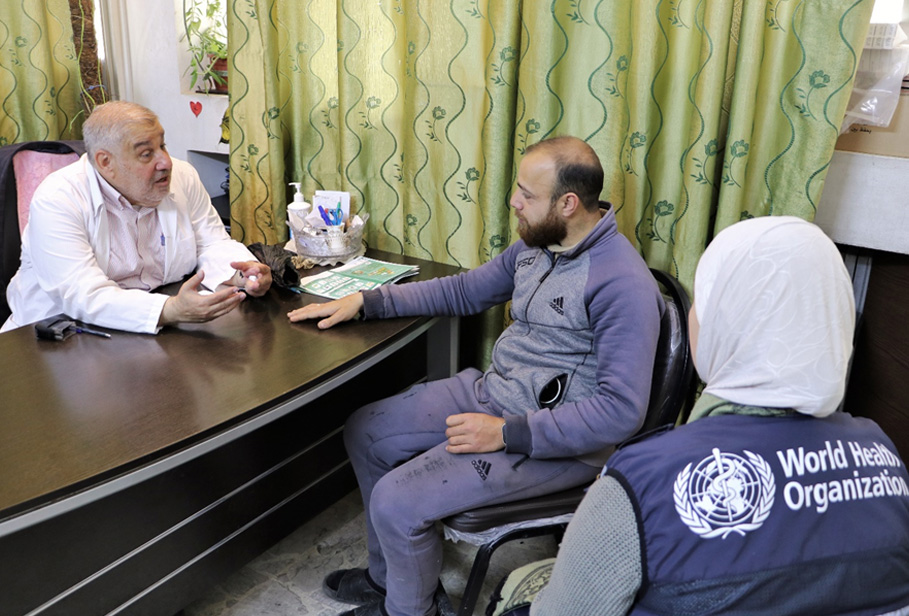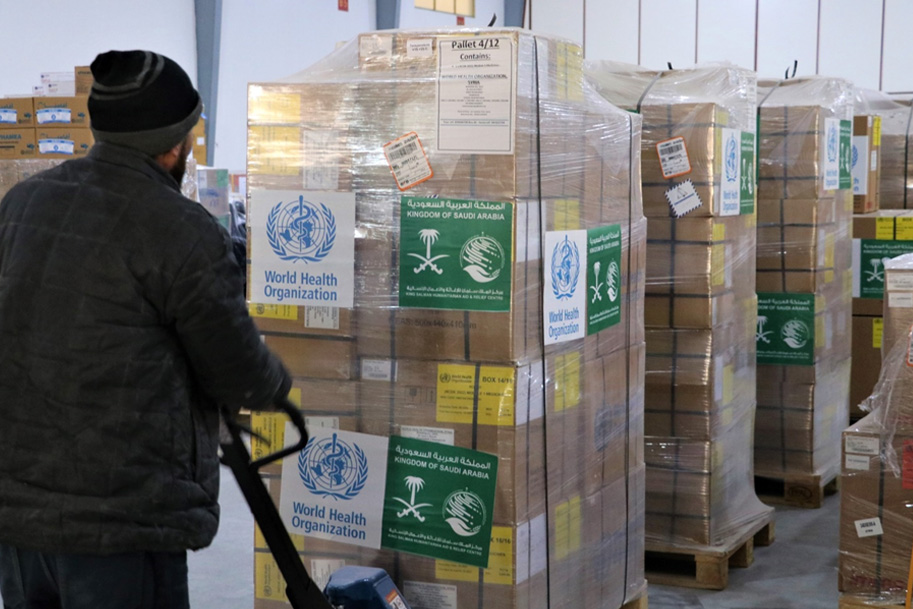 Molham, 22, consults his doctor at the National Hospital in Hama where he receives free insulin, provided by WHO with support from KSrelief. Photo credit: WHO25 June 2025, Syrian Arab Republic – “Without this insulin, I wouldn’t be alive today,” says 22-year-old Molham. “I’ve been coming to this centre for over 14 years. They’ve never let me down.”
Molham, 22, consults his doctor at the National Hospital in Hama where he receives free insulin, provided by WHO with support from KSrelief. Photo credit: WHO25 June 2025, Syrian Arab Republic – “Without this insulin, I wouldn’t be alive today,” says 22-year-old Molham. “I’ve been coming to this centre for over 14 years. They’ve never let me down.”
Diagnosed with type 1 diabetes when he was 5, Molham has spent most of his life managing a condition that demands routine and stability in a setting where limited resources and growing needs, compounded by prolonged conflict, have placed enormous strain on the health system, making access to essential medications like insulin immensely challenging.
“I remember the moment a shell landed just 100 metres from our home,” he recalls. “I ran, carrying my siblings. We hid under a car. We didn’t know if we would make it.”
Fear and instability took a toll on Molham’s health. Emotional stress triggered repeated drops in his blood sugar. “There were times I stopped eating, stopped taking my medicine properly. One day I collapsed and was rushed to intensive care.”
Continuity of care, thanks to targeted support
 WHO-supplied noncommunicable disease kits funded by KSrelief are prepared for distribution to support 100 000 patients across Syria. Photo credit: WHOMolham receives his medication, including life-saving insulin, free of charge at the Directorate of Health-managed National Hospital in Hama. He is one of thousands of people in Syria living with noncommunicable diseases (NCDs) – such as diabetes, hypertension and heart disease – which require long-term care and uninterrupted access to medicines.
WHO-supplied noncommunicable disease kits funded by KSrelief are prepared for distribution to support 100 000 patients across Syria. Photo credit: WHOMolham receives his medication, including life-saving insulin, free of charge at the Directorate of Health-managed National Hospital in Hama. He is one of thousands of people in Syria living with noncommunicable diseases (NCDs) – such as diabetes, hypertension and heart disease – which require long-term care and uninterrupted access to medicines.
To help people like Molham manage chronic conditions, the World Health Organization (WHO), with funding from King Salman Humanitarian Aid and Relief Centre (KSrelief), has delivered specialized NCD kits to health centres across Syria. The kits include treatments for chronic disease and medical devices for the management of hypertension and cardiac conditions, diabetes, endocrine conditions and chronic respiratory diseases. The supplies are enough to treat 100 000 patients, and distribution has been prioritized in areas with the highest need, including Hama, Aleppo, Latakia and Tartous.
“Thanks to this support I don’t worry about running out of insulin,” Molham says. “This place – the staff, the doctor, everyone – treats me like family. It’s my safe space.”
A fragile routine, built on resilience
Despite everything, Molham follows a strict routine: he takes his injections twice a day, avoids sugar and sticks to his appointments. He knows that any disruption – emotional, economic or medical – could land him back in hospital.
“I’ll do my best to stay healthy,” he says. “Because of all the people who are helping me – I want to honour that.”



